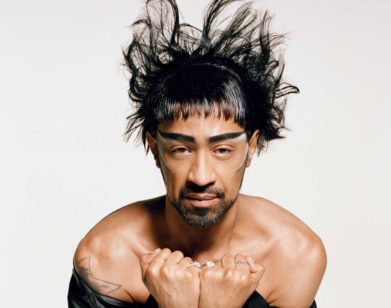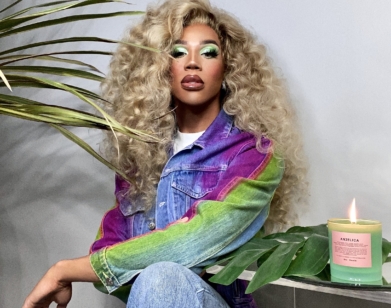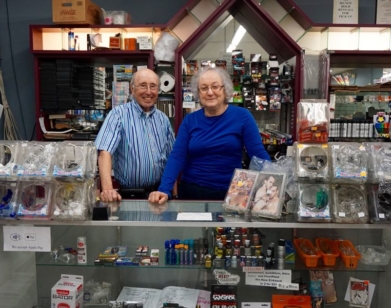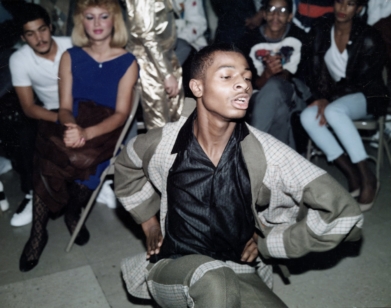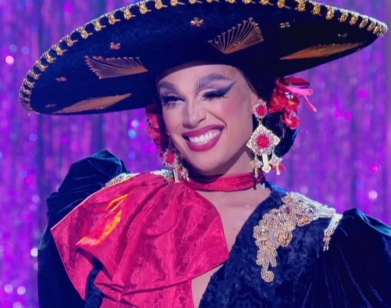How Joseph Cassara’s new book expands on the world of Paris is Burning
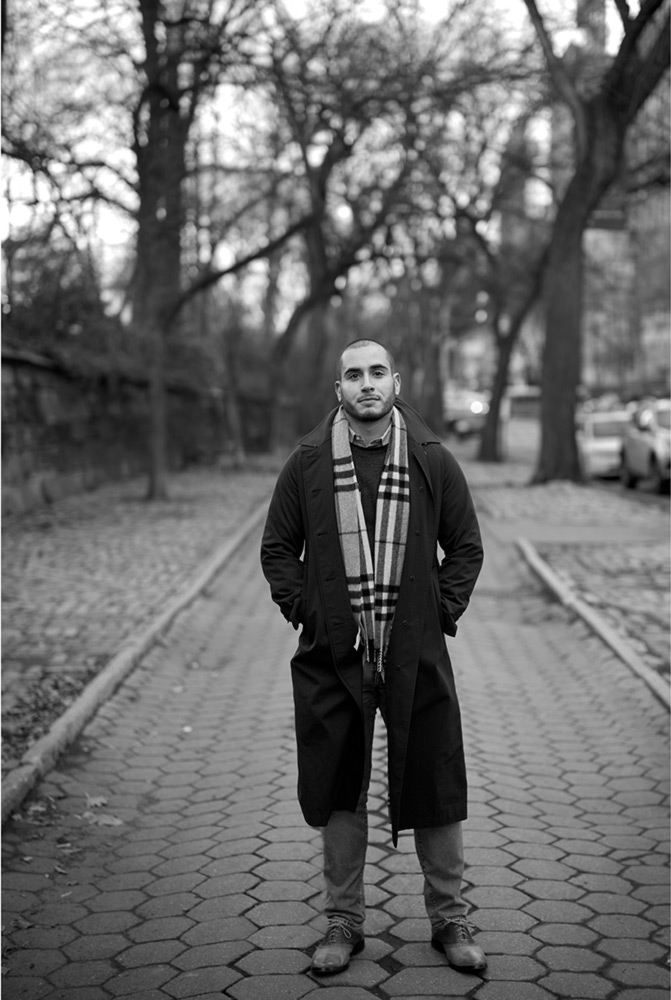
JOSEPH CASSARA IN NEW YORK, DECEMBER 2017. COAT AND SCARF: BURBERRY. SHIRT, PANTS, AND SHOES: CASSARA’S OWN. SITTINGS EDITOR: JENNY HARTMAN.
There is a moment early in Joseph Cassara’s debut novel in which Angel, a 17-year-old trans girl from the Bronx, sneaks away to a boutique in Manhattan’s East Village and, for the first time, tries on a dress in public: “When she finally stared at herself in the mirror, she raised her arms to the side like she was about to launch into flight. Head back, mouth open, she closed her eyes and laughed. ‘Free,’ she thought, ‘totally free.’” It’s this kind of freedom—transformative, empowering, often dangerous—that informs much of The House of Impossible Beauties, and it’s a state of mind that flows directly from its source material.
When looking for a framework to suit Cassara’s vision of a chosen family, the 28-year-old Iowa-based writer set his sights on one of LGBTQ culture’s most revered documents: Jennie Livingston’s 1991 documentary Paris Is Burning. In the annals of gay history, the film, which examines the Harlem ball scene, looms large. Its influence can be felt on everything from our vernacular—“shade,” “realness,” the Madonna-endorsed cultural ubiquity of vogueing—to the ways that queer culture continues to view itself, all of which made it perfect fodder for Cassara’s literary ambitions. “What would gay culture be like if that movie had never existed?” he asks. “Would RuPaul’s Drag Race even exist?” For Cassara, whose parents grew up in the Bronx and Brooklyn, it was also a chance to write about the city’s queer past—a story involving love, family, glamour, heartbreak, and the relentless shadow of AIDS.
The House of Impossible Beauties is less a retelling of Paris Is Burning than an expansion of its milieu. Spanning the late ’70s to the early ’90s, the story chronicles the rise of the House of Xtravaganza, the first all-Latino collective on the New York ball circuit. The book provides a glimpse into the lives of those individuals who created their own vibrant identities against seemingly impossible odds. It’s a novel in which real-life icons such as Angie Xtravaganza, Dorian Corey, and Pepper LaBeija once again live and breathe—even if only on the page. “I started off simply being inspired by these people,” Cassara says. “Now I view these characters as half fictionalized and half real, but also refractions of myself. A lot of people describe it as a trans novel, which I understand, but there are other characters, too. I would like for people to read it as an exploration of different types of sexual and gender identity, an exploration of what families can be, what they can mean.”
THE HOUSE OF IMPOSSIBLE BEAUTIES (ECCO) IS AVAILABLE NOW.


